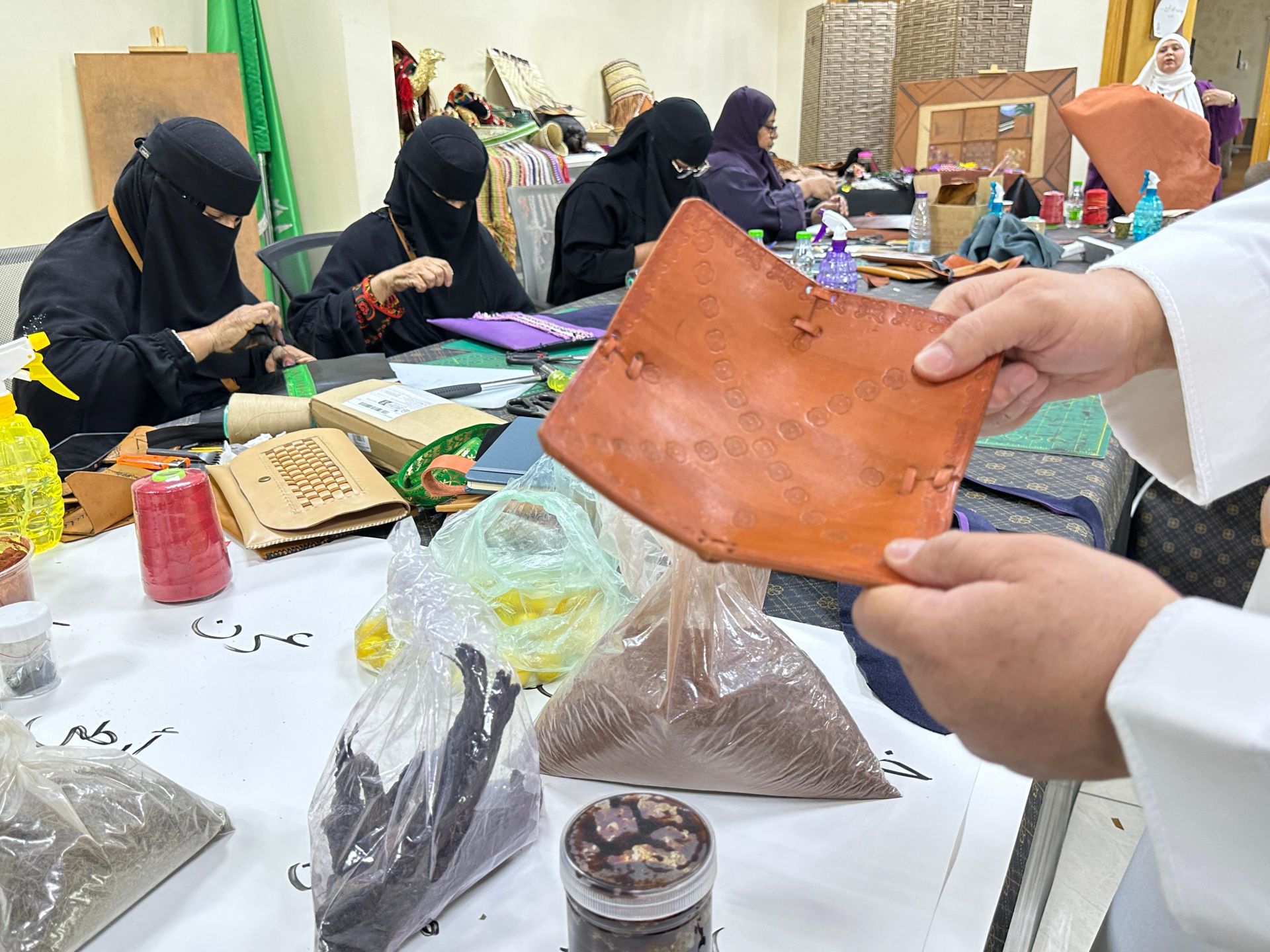
Empowering women’s skill development and entrepreneurship for sustainable agrifood systems in Saudi Arabia
FAO
29/10/2025
Riyadh | Women, often the primary custodians of traditional crafts and local knowledge, play an essential role in promoting vibrant rural economies. Across Saudi Arabia, women are actively engaged in activities such as weaving, making artisanal products, and various small handicrafts, including leatherwork.
As part of Saudi Arabia’s broader vision for economic diversification, social inclusion, and sustainable development, the ongoing Sustainable Rural Agricultural Development Programme (REEF), led by the Ministry of Environment, Water and Agriculture (MEWA), in partnership with the Food and Agriculture Organization of the United Nations (FAO), is advancing a transformative initiative. This programme aims to bolster women’s entrepreneurship within the agrifood system, empowering rural families, fostering resilient local economies, and unlocking the untapped potential of local resources—particularly in the leather value chain—through innovative skills development and market linkages.
Catalysts for change and resilient rural agrifood systems
“Empowering women entrepreneurs is a strategic approach to enhancing the economic resilience and sustainability of agrifood systems,” said Dr. Nizar Haddad, FAO Saudi Arabia Programme Director. He added, “It ensures that innovations reach the grassroots, fosters inclusive growth and preserves cultural heritage, and generates sustainable livelihoods.”
Recognizing the importance of this, the initiative emphasizes women’s entrepreneurial activities—particularly in leather craftsmanship and product diversification—contributing directly to global commitments, sustainability and the vibrancy of local agrifood systems.
Integrating cultural heritage and women’s entrepreneurship
The leather sector is deeply woven into Saudi Arabia’s cultural identity and presents a unique opportunity to transform underutilized resources—such as animal hides—into high-value products that appeal to both domestic and international markets. With over 25 million livestock managed by smallholder farmers, there is significant potential to develop a circular, sustainable leather value chain that benefits rural families, especially rural women entrepreneurs.
Women entrepreneurs link livestock production, value addition, and market access. They contribute to:
- Strengthening local food and non-food product value chains
- Enhancing rural employment and income diversification
- Promoting cultural tourism and export opportunities through artisanal crafts
- Supporting sustainable land and resource management practices
A two-week in-residence leather craft skill development capacity-building programme was recently organized in partnership with Al Jabreen Leather Factory and REEF Programme. The training provided hands-on experience in key techniques for leather craft making, including bags, gifts and personal items. Over a dozen women from various regions, including Madinah, Asir, Makkah, Jazan, Riyadh, Tabuk, and AlUla participated and acquired critical skills in leather craftsmanship, product design, and business management practices. The training modules include:
- Advanced leatherworking techniques (stamping, sewing, edge finishing)
- Product diversification (from traditional items to contemporary fashion accessories)
- Business planning, marketing, and financial management.
- Digital literacy for online marketing and e-commerce.
Most participants attended such a programme for the first time with FAO. They expressed pride in being part of an initiative that combines Saudi cultural heritage with modern techniques.
Amal Al-Zubaidi, one of the programme’s participants, shared her experience, “I've always loved leather sewing, but the journey wasn’t easy until one morning, I got a call inviting me to join a leather course organized by the REEF programme. Surprisingly, the training organized was super enriching and learning the leatherworking techniques was simpler than I expected, and most importantly, it reignited my passion. I even found out Saudi Arabia has a leather factory!”
She added, “Now, I’m working on starting my own leather project, becoming a certified trainer in my region, and proudly joining the community of women entrepreneurs in Saudi Arabia.”
This training has transformed the participants, even those with more than 20 years of traditional craft experience. The programme enables them to develop high-quality products in just one to two days instead of more than 14 days. This programme opens new opportunities for participants’ families, communities and beyond.
Towards a sustainable, inclusive rural economy
“Supporting rural families through capacity building and market access is improving the quality of life in the countryside and paving the way for a vibrant, inclusive, and sustainable rural economy,” said Dr. Adel Mohammed Almutlaq, Deputy Secretary-General, Sustainable Rural Agricultural Development Programme (REEF) at MEWA.
This innovative leather craft programme exemplifies how women-oriented entrepreneurship development can catalyze rural transformation, boost local economies, and preserve cultural heritage. It underscores the importance of integrating rural families into agricultural growth, for shaping the future of Saudi Arabia’s agrifood systems.
